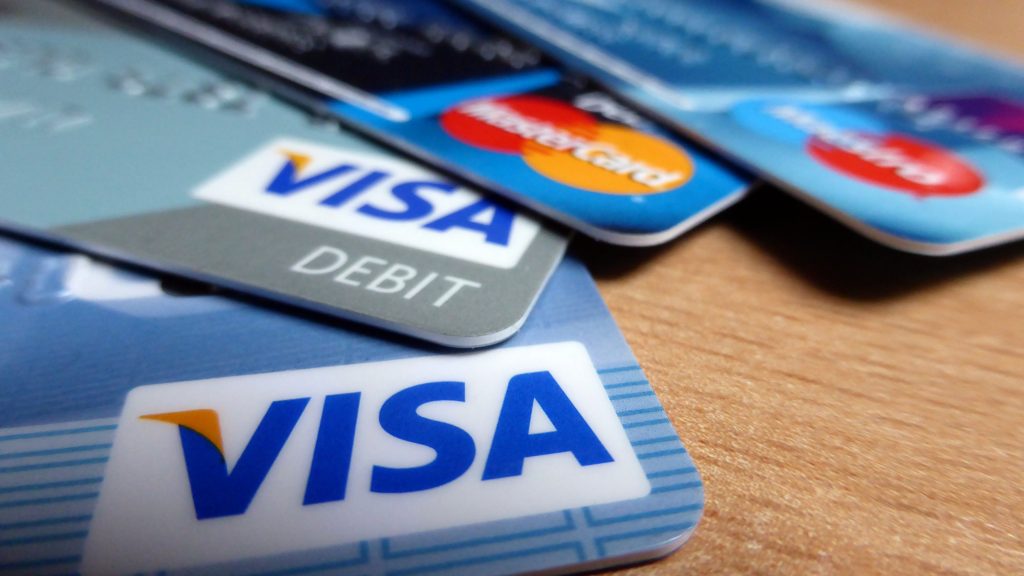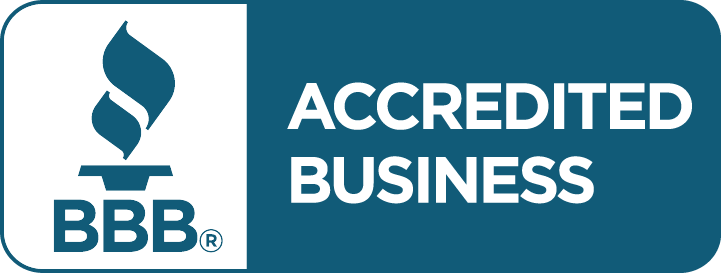With every day that goes by, COVID-19 continues to evolve and change our lives and our world. There is no doubt that all Canadians will see their finances impacted by COVID-19. While the government is stepping in to support those in need, we must all do our due diligence and fully understand what these measures mean, how they can help us, and more importantly, how they will impact us in the future.
With so many aspects of our finances being impacted, and with multiple streams of government support, it’s hard to keep track of everything. Here we outline everything you need to know about COVID-19 and your finances.
Income Support
As of April 6, 2020, the Government of Canada has opened the Canada Emergency Response Benefit (CERB) – a taxable benefit of $2,000 a month for workers who have lost income as a result of COVID-19.
If you’ve already applied for EI, you do not need to apply to the CERB.
The CERB will supplement workers on EI who are receiving below $2000. This means that everyone who is on either EI and/or the CERB will receive $2,000 per month for up to four months.
If you’re not on EI, you can apply directly to the CERB to receive the monthly $2000 payout. The CERB applies to anyone making less than $1,000 a month due to reduced hours, as well as seasonal workers.
Find out if you qualify and how to apply.
As of April 22, 2020, the federal government recently announced the Canada Emergency Student Benefit (CESB), which will provide support to students and new graduates who are not eligible for the CERB and are unable to work due to COVID-19.
The benefit will provide eligible students with $1,250 per month, or $1,750 for those with dependents or disabilities. Students must be Canadian citizens or permanent residents – international students do not qualify for the program. Be sure to check the Canada.ca website for the application in the coming days.
Learn more about how the government is supporting students.
As of May 12, the federal government announced a one-time payment of up to $500 for seniors to help offset any increases in the cost of living due to COVID-19. Seniors who qualify for Old Age Security will be eligible for a one-time, tax-free payment of $300, and those eligible for the Guaranteed Income Supplement will get an extra $200.
Those eligible for both will receive $500.
Seniors who already are receiving both Old Age Security and Guaranteed Income Supplement will receive the one-time benefit automatically – you do not need to apply for it.
Canadians with disabilities will also get a one-time $600 payment from the federal government. Canadians eligible for the disability tax credit (DTC) as of June 1 will receive $600 tax-free, without applying.
Increased Benefits
The government is providing increases to two existing benefits to help Canadian families through this time. Firstly, they are increasing the Canada Child Benefit to an extra $300 per child, which translates to approximately $550 more for the average family. If you already receive this benefit you will see an increase in May – you do not need to re-apply.
Secondly, for those that already receive the Goods and Services Tax Credit, you will receive an increase to this benefit in May. Single individuals will receive close to $400 while couples will receive $600. You do not need to apply for this – you will receive it automatically if you are eligible.

Loans & Credit Cards
If you have a loan out right now, unfortunately you will have to contact your bank directly to speak to them about any payment deferrals at this time. There is no legislation enforcing banks or other lenders to put a hold on loan repayments. Canada’s six largest banks issued a joint statement saying that they’ll work with customers on a case-by-case basis to help them manage through challenges such as pay disruption due to COVID‑19.
It is important to remember that if a bank is allowing you to defer payments, they are likely going to continue charging you interest. Ask them these important questions and crunch the numbers to determine how much it will actually cost you if you were to defer payments. If you can continue to make loan payments, it is recommended to do so in order to reduce the interest that you will pay.
For student loans however, the government has placed a six-month interest-free halt on all Canada Student Loan repayments, effective March 30, 2020. This means you will not have to pay your loans for six months and interest will not accrue during this time. You do not need to apply for this.
As of right now, there is no call to stop credit card companies from asking for payment, however the Big Six Canadian banks just announced that they are reducing credit-card interest rates temporarily. It is recommended that you pay your balance in full each month, however if you’re struggling financially at the moment, just pay the minimum balance to keep your credit in check. If your balance is high, consider using a line of credit at a lower interest rate to pay the balance, or talk to us about debt consolidation.
Mortgages & Rent
News spread like wildfire that banks were going to allow customers to defer mortgage payments. However, many people reported that when they called their bank, they were told their mortgage was too new to be deferred, or that the deferral didn’t apply to them. Additionally, many Canadians are struggling to even get through to their banks on the phone to speak to them about the situation.
Mortgages and rent are the top concern we are hearing from our clients right now. Obviously, people want to ensure they will have a roof over their head and do not want the banks to foreclose on their houses.
That being said, if you can continue to pay your mortgage, you should do so. Deferring a mortgage is a great short-term solution should you need to do it, but there is a cost associated with it. Banks will continue to charge interest on the premium during this period.
In addition to mortgage deferrals, banks are looking at solutions such as re-amortization, capitalization of outstanding interest arrears and other eligible expenses, and special payment arrangements. If you are experiencing financial difficulty right now, contact your bank to speak to them about a solution. Be sure to ask them if the interest will be frozen along with the payments, or if it will continue to accrue.
When it comes to rent, unfortunately there is no federal law mandating landlords to waive rent costs, as rental housing falls under provincial jurisdiction. Here is what each province in Atlantic Canada is doing to support renters:
- Nova Scotia has placed a three-month ban on all evictions as of March 19. However, this eviction ban is limited to people who cannot pay rent directly due to COVID-19.
- New Brunswick, under the declaration of state of emergency, has also placed a ban on all evictions related to the non-payment of rent until May 31st.
- Evictions for individuals living in buildings owned by the P.E.I. Housing Corporation, the island’s largest landlord, will be halted for six weeks from March 18. However, this eviction freeze is limited to people living in homes owned by the province, so private renters will not be covered. Additionally, the Island Regulatory and Appeals Commission (IRAC) is suspending all rental hearings until April 6 to ensure no evictions will take place.
- Newfoundland will be introducing new legislation on April 2 that will include information about rent. Check the government website for more information at that time.
In many instances, Canadians who qualify for EI or the CERB will be able to pay their rent with this income support. But with a reduced income, it will be important to manage your budget more carefully and reduce spending at this time to make the money last.

Housing Market
The housing market was projected to be hotter than ever this spring, but as COVID-19 continues to change the world economy by the hour, it’s now predicted to be slower than usual. With each provincial real estate association slowly implementing bans on open houses and in-person viewings, buying and selling will become increasingly difficult.
Unfortunately, some people will still be forced to sell if they’ve already bought a new house, while others may need to continue with a purchase due to divorce, downsizing or other economic factors. For those who don’t have urgent real estate needs, they will likely put buying and selling on hold.
If you do have to purchase a home, be sure to not buy something you can’t afford. With uncertainty around jobs and a recession predicted for the end of the year, you don’t want to put yourself in a difficult financial situation.
RRSPs and TFSAs
The stock market has taken a significant tumble these past few weeks and the impact has been felt by everyone. If you’re nowhere near the age of retirement, stay calm. Do not panic and sell everything right now – it’s already too late. Remember the cardinal rule of investing – buy low and sell high.
When it comes to investing, being patient and sticking it out over several decades is what will pay off in the long run. Rest assured the stock market will come back and your savings will be restored eventually.
If you’re a senior and have seen a significant impact on your retirement savings, the government is reducing the minimum withdrawals from RRIFs by 25% for 2020.
Taxes

The deadline to file taxes has been extended to June 1, 2020. However, if you expect to receive benefits under the Goods and Services Tax credit or the Canada Child Benefit, delaying your 2019 tax return filing may impact your entitlement, so it’s best to file as soon as you can. Additionally, if you’re one of the lucky Canadians getting a refund this year, it may come in handy if you’re short on cash.
The deadline to pay any owed income tax has also been extended to September 1, 2020. This will give you extra time to save money if you owe, so it’s best to file now to know how much you’ll have to pay. If you’re worried that you won’t have enough money to pay your income tax, read this.
In addition to the federal resources above, please also check in with your provincial government to see what additional support they’re offering residents.
Here are some additional tips to follow when it comes to COVID-19 and your finances:
Be wary of scams
Sadly, there are people that will always take advantage of even the worst situations. The COVID-19 pandemic has created a perfect storm for scammers seeking to defraud panicked, isolated and emotionally vulnerable targets.
There are already several scams in relation to COVID-19. For example, scammers will seek social insurance or banking information and try to trick victims to transfer upfront payments by claiming a small fee is needed to process a COVID-19 benefit cheque.
Know that the government will never communicate to you by text. All communication with the Canada Revenue Agency is done through your online account on their website or by mail.
BEFORE clicking on a link, Canadians should make efforts to conduct independent web searches to judge whether the information is coming from a verified source. Go to the official government website first and complete a search within that domain to see if the relevant notification or information actually exists.
If you suspect you may be engaged with a fraudster using pressure or exploiting fear, walk away, put down the phone or turn off the computer.
Rethink your travel plans and check your insurance coverage
To help limit the spread of coronavirus, international and domestic travel restrictions have been put in place. For those who already have trips booked, many airlines and hotels are refunding the cost-free of charge.
If a flight is cancelled by the airline, they must legally refund or rebook you. Most companies like Airbnb consider a travel ban an extreme circumstance, and will therefore waive any cancellation fee. However, some hotels have strict cancellation policies, especially if you paid a low price, and therefore may not refund you even if you can’t go on the trip.
If you have an upcoming trip, get in touch with the trip provider immediately to see if you qualify for cancellation.
Additionally, several insurance companies are now calling COVID-19 a known issue and therefore will not pay out on cancellations if they were booked after a certain time period. It’s best to check with your insurance company to find out if you’re covered.
The best thing to do right now is to stay put and not go on or book any trips for the next six months.
Revise your budget immediately
Money is going to be tight right now, which makes budgeting even more important than ever. If you don’t have a budget, now might be a good time to create one.
If you do have a budget but are going on EI, you will need to revise your budget to reflect your new income and expenses.
If you’re one of the lucky few that hasn’t yet seen your cash flow reduced, you should still look at your budget now. There is still lots of uncertainty and more job losses could happen. Do it now – don’t wait until it’s too late.
Reduce expenses
One of the silver linings of self-isolation is that we likely won’t spend a lot of money, however, with reduced income many of us will need to make cutbacks. Review each line item on your and identify the necessities (i.e. mortgage or rent, internet, food) and the non-necessities (i.e. subscriptions, cable, savings). In survival mode, you need to focus on paying your necessities first, and anything else later. This includes savings and loan repayments. If you have the money, try and make at least the minimum payment to keep your credit in check, as you may still need it.
Contact all of your lenders to find out what they’re doing to support people right now. Most of them have information on their website, or you can call them. Ask them what they can do to accommodate your situation, or, if you haven’t yet lost your job, ask them what your options are should you be laid off in the future.
Additionally, be careful not to get carried away with online shopping, takeout meals or panic-buying and stockpiling at the supermarket. This will cause you to make unnecessary purchases and spend more than you have during this time, putting you in a more difficult financial situation amidst uncertainty.

Consider going cashless
Many supermarkets are going cashless during this time to avoid the spread of COVID-19. Money carries tons of germs as it changes hands several times a day. Consider paying with a card if you’re going shopping to minimize the spread.
Keep some cash on hand
Cash is king, and there’s a reason for that. In times of economic uncertainty, you’ll always want a bit of cash in the event that you can’t access your money digitally or through the bank. This isn’t to say you should empty your bank account and put your money under the mattress, but having some cash on you isn’t a bad idea.
Start thinking about an emergency fund
If you’re one of the few Canadians that has an emergency fund in place, congratulations! Unfortunately, many Canadians don’t have the ability to stash the recommended six months of living expenses away. Nonetheless, if you ever needed a reason to build an emergency fund, this is it.
Teach your kids about financial literacy
Financial literacy isn’t taught in schools, but many Canadians wish it was. The world is experiencing a financial crisis right now that many of us aren’t equipped to deal with. Use this as an opportunity to talk to your kids about financial security, job loss, recessions and the economy. Teaching them healthy financial habits from an early age will pay off in the long run.
Seek help if you need it
This is a scary time for everyone. If you need help, guidance or advice on your finances during this time, please don’t hesitate to contact our team. We are here for you to talk about your options – now and in the future.
For more practical tips on how to manage your finances during this difficult time, read our latest blog.











